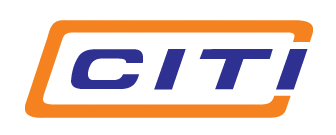As we move towards the last month of 2023, we see several recovery symptoms in the Indian textile sector after a long spell of financial stress, demand stagnation, inventory pile ups, raw material crisis and geopolitical challenges. Despiteglobal economic uncertainties, the Indian T&A industry is on the path of recovery, leveraging its position as the 5th largest economy. The same is also reflected in the export data for September and October during which the T&A exports increased by 1.77% and 10.44% respectively as compared to the same period of previous year. The production indices and inventory positions also show signs of recovery. But the vision of achieving a USD 350 bn textile market by 2030 needs a far greater demand and supply side push in terms of raw material security, market access enablers, focussed facilitation for the MSMEs, business continuity support for stressed textile units, etc.The present year witnessed an increased focus on environmental sustainability with the
fashion industry marking a turning point towards a more eco-conscious future and initiatives like regenerative fibers, circular initiatives, transparency and digital solutions reshaping the fashion industry. In order to align itself with the changing global trend, India has also taken certain initiatives like the Quality Control Orders (QCOs) and the formation of an ESG (Environmental, Social, and Governance) Task Force to demonstrate India’s commitment to responsible manufacturing and emerge as the leaders in the global textile value chain.
CITI’s events this year were also aimed at bringing these discussions to centre stage – both for businesses and policy makers. CITI’s Annual Mega Global Textile Conclave (GTC) emerged as a vital platform fostering collaboration, innovation, profitability, and sustainability in the global textile and clothing industry, setting the stage for a more responsible and balanced future. The theme ”Strategies for Balancing Sustainability & Profitability in Textile Value Chain” underscored the need for strategic approaches in the industry. During the GTC 2023, CITI also introduced first ever Textile Sustainability Awards for categories such as Expanding Circularity, Progress Towards Sustainability, and Recyclers, to recognize companies that have aligned themselves with Sustainable Development Goals (SDGs).
With the increased commitments of Environmental, Social, and Governance (ESG) by global business stakeholders and with larger corporations embracing greener technology, there is also an emerging need to guide the majority of MSMEs towards capacity building in this area. Moreover, the influence of sustainability initiatives will significantly impact India’s utilization of upcoming Free Trade Agreements (FTAs) with the EU, UK, and Canada, where evolving ESG regulations are becoming crucial for market access. With this in mind, CITI also started the ESG series by conducting workshops to enhance understanding, build capacity, and shard best practices with MSMEs that aimed to mitigate the impending negative impact of climate change. CITI, as a member of the Government’s ESG task force, commits to facilitating industry connection and awareness for effective ESG initiatives.
The 11th edition of ATEXCON in Coimbatore in September 2023 which was themed “2025 & Beyond Asia’s Global Hub for Textile Manufacturing & Consumers”, was a grand success with stimulating discussions on Asia’s pivotal role in textile manufacturing and consumption, acknowledging its 65% market share in the $800 billion global trade, and a roadmap to further increase this share with India playing a pivotal role in the same.
Apart from this, CITI has conducted webinars on various topics throughout the year on topical issues like New Labour Codes and their impact on the Textile Industry, MSME Competitive (LEAN) Scheme, FTP 2023, Utilizing FTA’s, etc.
The year also saw strong strides in CITI’s Cotton Development & Research Arm, CDRA’s role in enhancing cotton productivity and agronomic practices. Besides undertaking several CSR projects, CITI CDRA is also working as one of the implementing agencies for the Special Project on Cotton of ICAR-CICR – ‘Targeting Technologies to Agro-Ecological Zones – Large Scale Demonstrations of Best Practices to Enhance Cotton Productivity’ under NFSM during 2023-24. The CDRA network helped in implementation of several new agronomic practices and technologies with approximately 5000 small and marginal farmers. CITI is also developing a web-portal and mobile app for better implementation and project activities of this project. It is one of its kind portal where the real-time data of the farmers, the geo-referenced fields, and other provisions will be captured to help in better understanding, monitoring, and management of the farm production. The portal aims to strengthen market linkages of the producer and user industry in cotton and enhance traceability. CITI CDRA plans to work on promotion of regenerative cotton and carbon sequestration in the coming year. We invite textile industry to partner with us in these initiatives.
On behalf of the new Office bearers and Committee members of CITI, I wish all our readers a Very Happy and Prosperous New year!
Ms Chandrima Chatterjee
Secretary General – CITI
